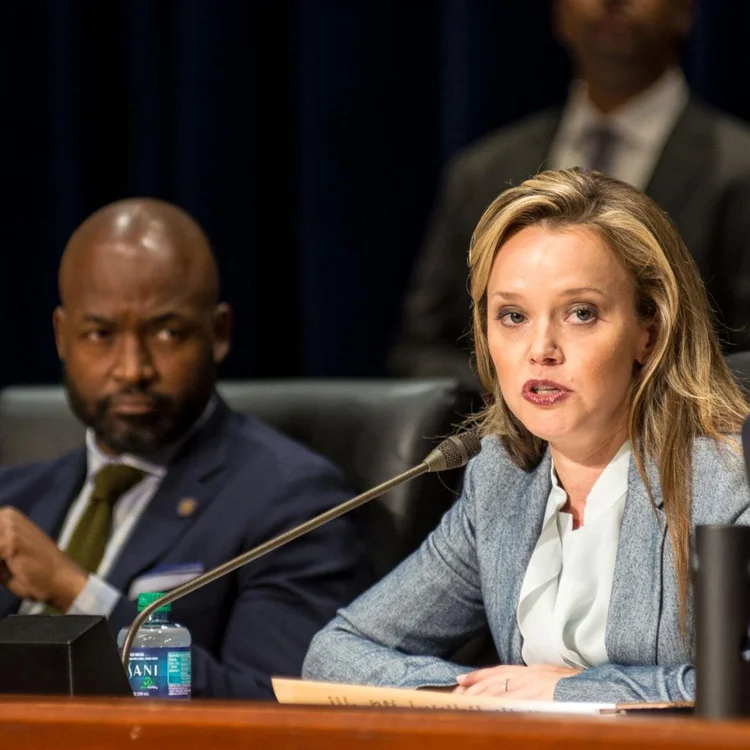Pres. George W. Bush several swing states and battleground states because of his moral values and fight against terrorism.
On Nov. 3, Bush won the presidential election with 274 electoral votes. Bush’s opponent, John F. Kerry conceded the election at the last minute with 252 electoral votes.
Prior to the both candidates the candidates debated and expressed their views on national television.
According to some American citizens, not much was accomplished during the presidential debates. Esther Mathews, sophomore business management major said, "Bush and Kerry were arguing like two young boys fighting over a toy."
President Bush’s second four-year term will begin Jan. 20, 2005 with his first term ending Jan. 20, 2009. Many Americans were confident about the way President Bush is handling the terrorist attacks and protecting the country. Bush’s plans and strategies overruled Kerry’s plans in America’s eyes.
"Bush was basically told what to say by his cabinet and public relations team. Everyone knows that Bush cannot think on his own. So, this is why I think he won certain swing states over Kerry," said Tedra Jackson, a senior psychology major.
Many of the swing states voted in favor of traditional values and the war on terrorism. Bush won votes in several contested states although the call could have went to either candidate. The 43rd president won among those in swing states who picked moral values 84-15 and Bush won among those who picked terrorism 85-15. Sen. John Kerry won by a wide margin among those voters who picked the economy, according to www.story.news.yahoo.com.
"The important thing is that I voted for Kerry. It wasn’t until after I voted, I was told that my vote did not count. I was pissed off, but at least I got to exercise my right," said Mathews.
There were several states that were reported as swing states that either Bush or Kerry could have won. However, most websites and publications said that the main swing states were Florida, Ohio and Pennsylvania with a dozen of battleground states contested by both candidates. It was a given that Bush would win votes from Texas, New Mexico, Iowa and others republican dominated states. Sen. Kerry secured the majority vote from Massachusetts, New Jersey, California and other liberal states.
President Bush won a fourth of the voters in swing states, which were white voters who consider themselves evangelicals and voted for Bush by almost 3-to-1 – providing a strong base for Bush in those key states. About 3-in-10 swing state voters were from cities of over 50,000 people, and voted for Kerry by 2-to-1. But in the suburbs, swing state voters went for Bush 54-45. In rural areas they went for Bush 57-42, according to www.story.news.yahoo.com.
There are twenty-one battleground states, 12 of these states were reported as swing states during this election. Either candidate can win swing states. The state could swing either way, towards the Democratic Party or the Republican Party. The other nine swing states include Arizona, West Virginia, Nevada, New Mexico, Wisconsin, Iowa, Oregon, Minnesota and Michigan.
Florida, Ohio and Pennsylvania were the main targets in this year’s election. Bush won these states’ votes because of his religious beliefs on certain issues. Bush reminded many states of his thoughts on issues such as gay marriages, the economy, anti-terrorism and religious values. Researchers said that some Americans were unsure of Kerry’s values.
President Bush visited six states on Nov. 1 including Ohio, Pennsylvania, Wisconsin, New Mexico, Texas and Iowa to give a last impression. "Bush may have traveled to all those states before Election Day, but I do not think he should be in office; he’s still confused," said Mathews.






























